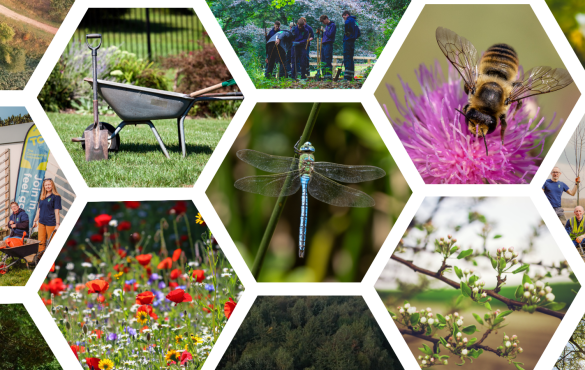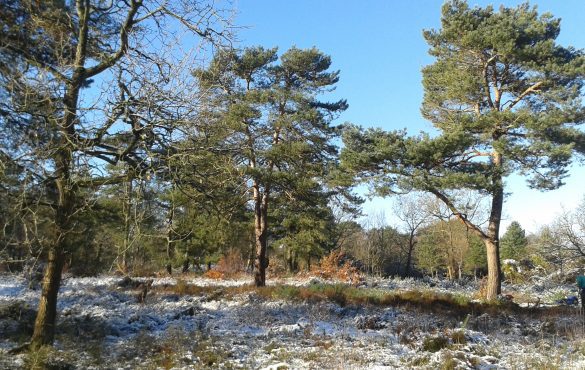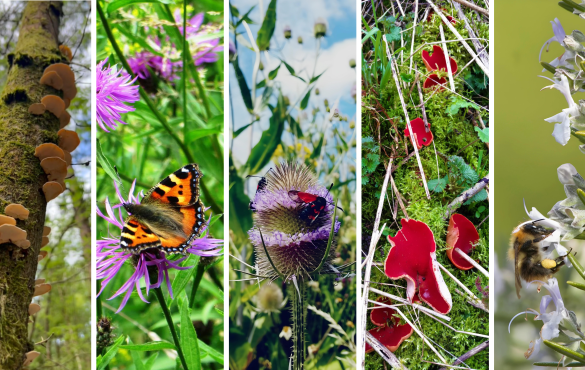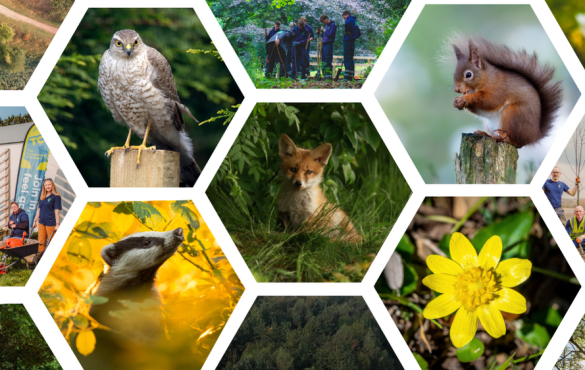Since The Conservation Volunteers paused its volunteering projects in light of the COVID-19 pandemic, many staff and volunteers have put their energies into helping the NHS and vulnerable people. Others are looking after small public sites single-handed while those with allotments have been able to take care of them, following government and National Allotment Society social-distancing guidelines.
TCV staff have also kept an eye on local green spaces and carried out essential repairs in the interests of public safety.
But nature does not rest.
Can coronavirus save nature?
The lockdown has had a direct impact on the places looked after by TCV volunteers and community groups. Much work will be needed to prevent long-lasting damage to wildlife habitats. To take a few examples:
- Tree planting – wiped off the news agenda by Covid-19, we still need millions of new trees to mitigate climate change, reduce pollution and improve biodiversity.
- Care of woodland – rich communities of plants, animals and fungi built up over decades or centuries will continue to need management and protection
- Invasive species – Himalayan balsam, rhododendron, bracken, giant hogweed, pondweeds, all the usual suspects TCV volunteers have battled over 60 years, must be tackled to preserve precious habitats and public amenities
- Wildflower meadows – periodic cutting to maintain swards of beautiful native wild flowers is on hold
- Litter – the lockdown has seen a massive growth in fly-tipping; beaches are not being swept of the plastic pollution brought in by every tide
- Pond life – species-enriching activities such as TCV’s National Lottery Heritage-funded Croydon Ponds Project which combined practical habitat improvement, ecological surveys and local archive research are impossible without team-work and open libraries
- Access to nature – the building and repair of footpaths, stiles, steps, gates to enable people to appreciate local green spaces without damaging them will remain difficult while groups of varied ages, gender, health and fitness cannot be safely assembled and transported to site.
Working with nature
The adverse effects of lockdown will be harder to remedy the longer it takes to produce a vaccine or effective drug treatments. Lots of time, enthusiasm and hard work will then be needed to set things right. But alongside the terrible distress the virus has caused, it has also brought an opportunity to create a ‘new normal’ that will permanently benefit people and nature.
Yes, the coronavirus could radically change the natural world for the better, but only with our help. We have more motivation than ever to ‘join in, feel good’.
As today is National Environment Day, TCV are taking a look at the ways in which the virus has affected nature and the impact that this will have on conservation work worldwide.
Anyone going out for daily exercise in the glorious weather during lockdown will have enjoyed the sight of a burgeoning Spring. Bird song seems louder; magpies strut the streets; flotillas of ducklings and goslings sail the waters. Even if you remained indoors, you may have enjoyed the sight of wild goats munching on the gardens of Llandudno or admired an elegant jellyfish as it glides along a Venice canal. Some have celebrated that wildflowers are flourishing due to lack of grass cutting.
Is this a glimpse of a greener future that awaits after the pandemic?
Two futures
The COVID-19 virus does not act on wildlife populations directly – the bat colonies where it is thought to have originated are completely immune – rather it acts on nature through humans. Some of the immediate effects have been destructive. PPE litters the floor of the Mediterranean, and the RSPB reported a surge in illegal killings of birds of prey. Other impacts are much more positive and could become permanent. Increased homeworking, video conferencing, automation, online shopping and staycations could lead to a long-term cut in greenhouse gases, pollution, and general people-pressure on wildlife. School pupils might spend more time out of the classroom, fostering greater appreciation of their natural surroundings. It has also been suggested that more landowners and farmers will consider re-wilding to restore countryside habitats, perhaps with the support of the Environmental Land Management scheme which is intended to replace the EU’s Common Agricultural Policy in the UK.
Unfortunately, life after coronavirus could also be less rosy. Tackling employment levels and reducing levels of poverty, crime, social deprivation, physical and mental illness will prove challenging for governments. We might even see greater car use if people remain wary of public transport and insufficient steps are taken to increase walking and cycling. As lockdown eases, the pressure will be on to get people back into work and ‘sort out’ national finances. When ‘hard choices’ are made, infrastructure projects could take priority over improving the environment.
It is also possible that the lesson people will take from our lovely, yet unprecedented, springtime is that if we leave nature alone, everything will be fine.
It won’t.
Once we are able to restart our volunteering activities, protecting your local area to protect and caring for our natural environment ensures that nature remains a priority with our local communities and further.




